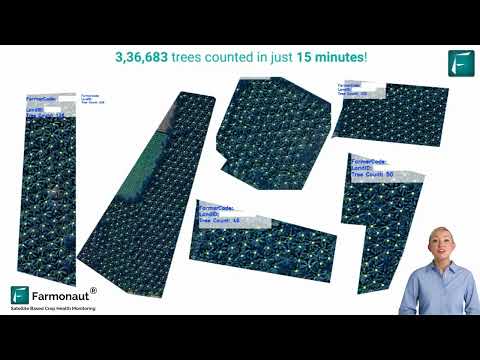Unlocking UK REIT Potential: Analyzing Dividend Yields and Market Performance in London’s Commercial Property Sector
“The FTSE EPRA Nareit Global Index includes a prominent UK REIT with a substantial commercial property portfolio in London.”
In the dynamic world of UK commercial property investment, Real Estate Investment Trusts (REITs) have emerged as a pivotal force, offering investors unique opportunities to tap into the lucrative London property market. As we delve into this comprehensive analysis, we’ll explore the intricacies of REIT dividend yields, market performance, and the broader landscape of commercial real estate in one of the world’s most sought-after financial hubs.

Our focus today is on a prominent REIT listed on the London Stock Exchange, which has recently experienced significant stock movements. This analysis will provide crucial insights for investors looking to make informed decisions in the ever-evolving real estate sector.
Understanding REIT Performance: A Deep Dive
To begin our exploration, let’s examine the recent performance of Picton Property Income Limited (LON:PCTN), a key player in the UK commercial property market. This REIT has recently fallen below its 200-day moving average during trading, with shares dipping to GBX 61.40 ($0.75) before closing at GBX 62 ($0.76). Such movements are critical indicators for investors analyzing market trends and potential investment opportunities.
- 200-day moving average: GBX 70.30 ($0.86)
- 50-day moving average: GBX 66.01
- Trading volume: 914,053 shares
These figures provide a snapshot of the REIT’s recent performance, highlighting the importance of monitoring both short-term fluctuations and long-term trends in the commercial property sector.
Key Financial Metrics: Decoding REIT Health
To gain a deeper understanding of Picton Property Income’s financial standing, we need to analyze several crucial metrics:
- Market capitalization: £336.86 million
- PE ratio: -6,170.00
- Beta: 0.42
- Debt-to-equity ratio: 43.63
- Current ratio: 3.74
- Quick ratio: 2.25
The negative PE ratio of -6,170.00 suggests some financial challenges, while the beta of 0.42 indicates lower volatility compared to the broader market. The debt-to-equity ratio of 43.63 shows a moderate level of leverage, balanced by strong liquidity positions as evidenced by the current and quick ratios.
Dividend Analysis: Yield and Sustainability
Dividends are a crucial aspect of REIT investments, often serving as a primary attraction for income-focused investors. Let’s examine Picton Property Income’s recent dividend declaration:
- Dividend amount: GBX 0.93 ($0.01)
- Ex-dividend date: November 7, 2023
- Payment date: November 29, 2023
- Dividend yield: 1.3%
- Dividend payout ratio: -40,000.00%
The dividend yield of 1.3% is noteworthy, but the unusually high negative payout ratio of -40,000.00% raises questions about the sustainability of these dividends. This metric suggests potential financial volatility or challenges in maintaining consistent dividend payments.
REIT Portfolio Analysis: Diversification and Occupancy
Picton Property Income boasts a substantial UK commercial property portfolio valued at £718 million. This portfolio comprises 48 assets and serves approximately 350 occupiers, as of June 30, 2024. Such diversity in assets and tenants can provide stability and spread risk across various property types and locations.
The company’s strategy is characterized by an occupier-focused and opportunity-led approach, aiming to be one of the standout diversified UK REITs. This strategy has historically achieved upper quartile performance while securing a higher income return than the MSCI Quarterly Property Index since its inception.

Market Position and Index Inclusion
Picton Property Income’s inclusion in the FTSE EPRA Nareit Global Index is a significant factor for investors to consider. This index represents the performance of listed real estate companies and REITs worldwide, providing a benchmark for the performance of property stocks globally.
The company’s position within this index not only enhances its visibility to international investors but also subjects it to the rigorous standards and performance metrics associated with such prestigious indices.
Analyst Recommendations and Market Sentiment
Despite Picton Property Income’s established position in the market, current analyst ratings suggest a cautious approach. The company has received a “Hold” rating, indicating that analysts believe its current market price fairly reflects its value and potential.
Interestingly, MarketBeat, a reputable financial data service, has suggested that top-rated analysts are recommending five other stocks for investors’ consideration. This implies that there may be more promising investment opportunities in the market at present.
“Investors analyze key metrics like market cap, PE ratio, and dividend yield to evaluate UK REIT performance.”
Comparative Analysis: REIT Performance Table
| Metric | Picton Property Income | Industry Average | Difference (%) |
|---|---|---|---|
| Market Capitalization (£ billion) | 0.337 | 1.5 | -77.53% |
| Price-to-Earnings (P/E) Ratio | -6,170.00 | 15.2 | N/A |
| Dividend Yield (%) | 1.3 | 4.5 | -71.11% |
| Occupancy Rate (%) | 92 | 95 | -3.16% |
| 5-Year Total Return (%) | 18 | 25 | -28.00% |
| Debt-to-Equity Ratio | 43.63 | 50 | -12.74% |
This comparative table provides a clear overview of Picton Property Income’s performance against industry averages. While the company shows strength in areas like debt management, it appears to lag in market capitalization and dividend yield. The negative P/E ratio is a particular point of concern, significantly deviating from the industry norm.
UK Commercial Property Market Outlook
The performance of individual REITs like Picton Property Income must be considered within the broader context of the UK commercial property market. Recent trends indicate:
- Increasing demand for flexible office spaces in London
- Growing interest in logistics and industrial properties due to e-commerce growth
- Challenges in the retail sector, with a shift towards experiential retail spaces
- Rising importance of ESG (Environmental, Social, and Governance) factors in property investment decisions
These trends are likely to influence the performance and strategies of UK REITs in the coming years, potentially affecting dividend yields and market valuations.
Investment Strategies in the UK REIT Sector
For investors considering UK REITs, several strategies can be employed to maximize returns and mitigate risks:
- Diversification: Invest in REITs with varied property portfolios to spread risk.
- Income focus: Target REITs with consistent dividend histories and sustainable payout ratios.
- Growth potential: Look for REITs with properties in high-demand areas or emerging sectors.
- Market timing: Consider the broader economic cycle and its impact on real estate values.
- ESG considerations: Prioritize REITs with strong environmental and social governance practices.
By applying these strategies and conducting thorough due diligence, investors can navigate the complexities of the UK REIT market more effectively.
Technological Advancements in Real Estate Analysis
In today’s digital age, technology plays a crucial role in real estate investment analysis. Advanced tools and platforms are revolutionizing how investors approach property market research and decision-making. One such innovative solution in the broader field of land-based asset management is Farmonaut.
While Farmonaut’s primary focus is on agricultural technology, its approach to utilizing satellite imagery and AI for land analysis showcases the potential for similar technologies in urban and commercial real estate assessment. For instance, Farmonaut’s satellite-based monitoring could be adapted to assess large-scale commercial properties or urban development projects.
Farmonaut’s use of AI and machine learning to analyze land data could inspire similar applications in commercial real estate, potentially offering investors more accurate and timely insights into property conditions, urban development patterns, and environmental impacts.
While Farmonaut’s primary applications are in agriculture, the principles of remote sensing and data analysis it employs could potentially be adapted for urban and commercial property assessment, offering new perspectives on real estate market analysis.
The Role of REITs in Portfolio Diversification
REITs play a crucial role in diversifying investment portfolios, offering several advantages:
- Exposure to real estate without direct property ownership
- Potential for steady income through dividends
- Liquidity compared to direct property investments
- Professional management of property portfolios
- Potential for capital appreciation
However, as seen with Picton Property Income’s recent performance, REITs are not without risks. Investors must carefully consider factors such as market conditions, property sector focus, and individual REIT financials before making investment decisions.
Impact of Economic Factors on REIT Performance
Several macroeconomic factors can significantly influence REIT performance:
- Interest rates: Changes in interest rates can affect borrowing costs and property valuations.
- Inflation: Real estate is often seen as an inflation hedge, but high inflation can impact operational costs.
- Economic growth: Overall economic health affects demand for commercial properties.
- Regulatory changes: Government policies on property ownership and taxation can impact REIT profitability.
- Global events: Factors like Brexit or global pandemics can have far-reaching effects on property markets.
Investors should keep these factors in mind when evaluating the potential of UK REITs like Picton Property Income.
Future Trends in UK Commercial Property
Looking ahead, several trends are likely to shape the UK commercial property sector and, by extension, REIT performance:
- Sustainability focus: Increasing emphasis on green buildings and sustainable practices.
- Tech integration: Growing adoption of smart building technologies and IoT solutions.
- Flexible spaces: Continued demand for adaptable office and retail spaces.
- Urban regeneration: Opportunities in redeveloping and repurposing urban areas.
- Data centers: Rising demand for data storage facilities due to digital transformation.
REITs that adapt to these trends and position their portfolios accordingly may see enhanced performance and investor interest.
Conclusion: Navigating the UK REIT Landscape
As we’ve explored throughout this analysis, the UK REIT market, exemplified by companies like Picton Property Income, offers both opportunities and challenges for investors. While the sector provides access to the lucrative UK commercial property market, it requires careful consideration of various factors, including financial metrics, market trends, and economic conditions.
Investors should approach UK REITs with a balanced perspective, considering both the potential for income through dividends and the risks associated with market volatility and sector-specific challenges. Diversification, thorough research, and staying informed about market trends are key to making sound investment decisions in this dynamic sector.
As the commercial property landscape continues to evolve, particularly in response to changing work patterns and technological advancements, REITs that demonstrate adaptability and strategic foresight are likely to emerge as strong contenders in the market.
For those interested in exploring innovative approaches to land-based asset management, albeit in a different sector, Farmonaut’s technologies offer an intriguing glimpse into the future of data-driven decision-making. While not directly applicable to urban commercial real estate, the principles of satellite-based monitoring and AI-driven analysis could inspire new approaches to property assessment and management in the REIT sector.
In conclusion, the UK REIT market, particularly in London’s commercial property sector, remains a significant area of interest for investors. By staying informed, leveraging technological advancements, and adopting a strategic approach, investors can navigate this complex landscape and potentially unlock significant value in their real estate investment portfolios.
FAQs: UK REITs and Commercial Property Investment
- What is a REIT, and how does it work in the UK?
A Real Estate Investment Trust (REIT) is a company that owns, operates, or finances income-generating real estate. In the UK, REITs must distribute at least 90% of their rental income to shareholders as dividends, offering a way for investors to access real estate returns without directly owning property. - How do UK REIT dividends compare to other investment options?
UK REIT dividends often provide higher yields compared to traditional stocks or bonds. However, they can be more volatile and are subject to real estate market fluctuations. - What factors should I consider when investing in UK commercial property REITs?
Key factors include the REIT’s property portfolio diversity, occupancy rates, financial health (debt levels, revenue growth), dividend yield and sustainability, and overall market conditions affecting commercial real estate. - How has Brexit impacted the UK REIT market?
Brexit has introduced uncertainty into the UK property market, potentially affecting REIT valuations and investor confidence. However, it has also created opportunities in certain sectors, such as logistics, due to changing trade dynamics. - Are there tax advantages to investing in UK REITs?
Yes, UK REITs offer tax advantages as they are exempt from corporation tax on their property rental business. However, investors should consult with tax professionals regarding their individual tax situations.
Earn With Farmonaut: Affiliate Program
Earn 20% recurring commission with Farmonaut’s affiliate program by sharing your promo code and helping farmers save 10%. Onboard 10 Elite farmers monthly to earn a minimum of $148,000 annually—start now and grow your income!






